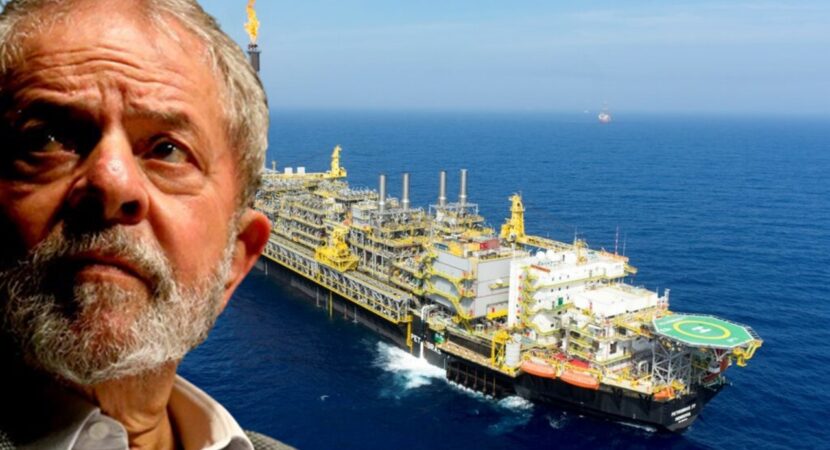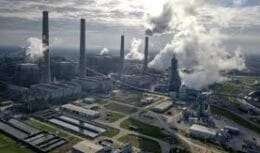
Since the collapse of the naval sector in Brazil due to corruption scandals, Petrobras has decided to order oil platforms and ships, among other equipment, from the Asian continent.
At least 14 oil platforms must be put into operation by Petrobras in Campos Basin, between the north coast of Rio de Janeiro and the south coast of Espírito Santo, and in Santos, in São Paulo, by the year 2026. Of all these platforms, 10 were ordered abroad, 7 in China, 2 in Singapore and 1 in South Korea. Squid
The transfer of oil platform constructions is part of the current government's policy, which aims at autonomy and non-interference in the state-owned company's administrative guidelines. Which has always caused criticism, because deciding to reduce the local content, ended up making it impossible to generate new jobs in shipbuilding in Brazil, given that orders for oil platforms in Asia are much cheaper. According to a survey by the Institute for Strategic Studies on Petroleum, Natural Gas and Biofuels (ineep), for each billion invested in building a new platform, it is possible to generate 26,3 jobs.
only the FPSO Maria Quitéria, which is expected to operate at the end of 2024 in the Espírito Santo area of the Campos Basin, with a production capacity of 100 thousand barrels of oil and five million cubic meters of natural gas per day, has an estimated investment of R$ 5,6 billion , generating more than 148 jobs in Asia. This is the most anticipated project for the Espírito Santo region. Squid
It is a fact that the corruption scandals, revealed by the Lava Jato operation, made the marine industry of Brazil sink. Until 2015, the sector celebrated billionaire orders. Now, Brazil faces the shrinkage that contributes to the country's high unemployment rate, amounting to over 10 million people.
Brazilian shipyards currently employ around 21,4 workers, far from the peak of 2014 when there were more than 82,4 employees, according to statistics from the National Union of the Naval and Offshore Construction and Repair Industry (Sinaval).
What to do for Brazil to return to the peak of naval production?
In this year of presidential elections, one of the main political issues was the price of fuel in Brazil. Gasoline, the oil-derived fuel most used in the country, cost R$7,39 per liter at the end of June. As of July, prices fell by 8,4% year-to-date. What made society question whether if Lula were elected in 2022, Petrobras' Comperj refinery project could be resumed or not.
When it comes to the naval sector, little has been said. For oil workers in Brazil, the way for the naval industry to revive with strength is the resumption of national production. That is, it is necessary that orders for oil platforms and other industry equipment take place in the Brazilian market.
Therefore, the next president of Brazil must work so that Petrobras once again has a policy of contemplating the local industry and makes changes to its business strategy. Thus, the state-owned company would expand its effective contribution to its role in the country's economic development.
The question is who would be willing to work on it? Bolsonaro, who in recent years has preferred not to intervene in Petrobras' administrative policies and let it order platforms from easterners based on the possible costs that the state-owned company could have, or Lula, who carries a discredit on the part of the sector's business community?
Resumption of orders is a demand of the category
A Single Federation of Oil Workers (FUP) presented to the Lula-Alckmin ticket his proposal to resume orders for the naval sector in the Brazilian market.
Among the category's proposals, there are also changes in Petrobras' business strategy and its relationship with the private sector, mainly in the segments in which it has caused it to increase the fragility of the national productive park due to the withdrawal of Petrobras in the participations.
“The energy sector involves not only the Oil and Gas (O&G) industry, but an extensive set of industries whose income is linked to this segment. This means that specific policies for exploration and production, refining, gas and renewables must undergo transformations to deal with numerous challenges such as the destruction of local clusters with the departure of Petrobras; the unbundling of production chains; fuel price hikes; and dependence on imports, among others”, highlights FUP's general coordinator, Deyvid Bacelar.













I never leave Brazil but I would love one…
I have a C4 Cactus Shine Pack THP…
The old Monza was a super car…
Tesla Model S plaid has 1035 horsepower,…
My watzp,62.9.8210.1837.
Hello good afternoon, my name is Joel Pereira, I’m at…
I had Monza 1994, Classic, very good,…
It's worth millions of dollars and explodes just like that...